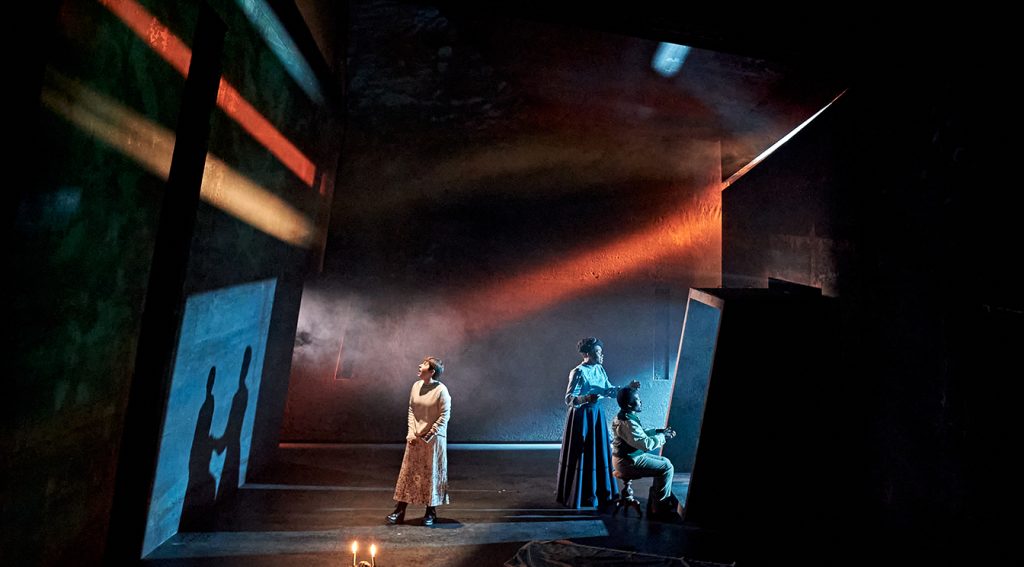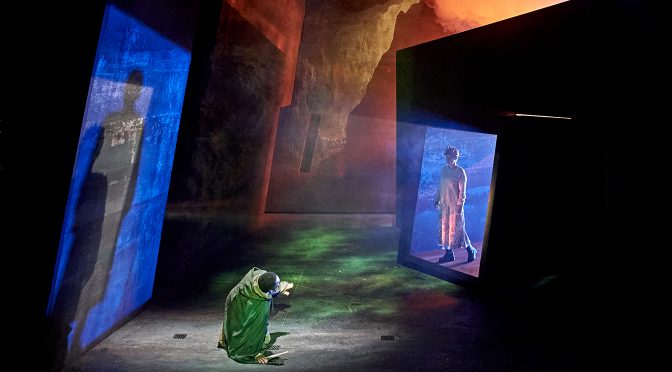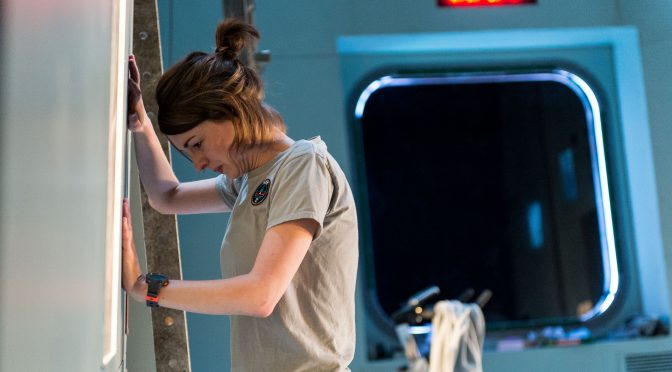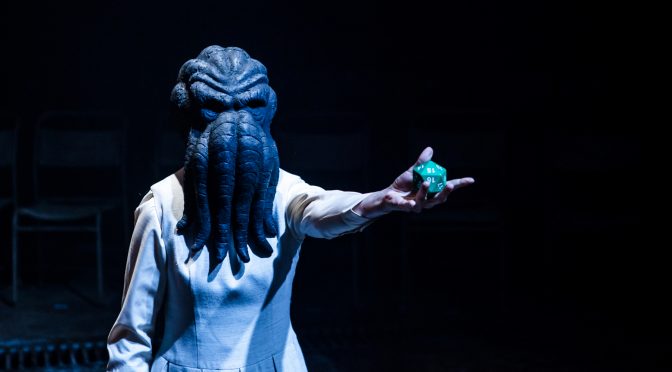A supernatural spectacular, Alistair McDowall’s new play travels to the beginning and the end of time. With a central character – The Woman – who is immortal, there’s an ambition to the piece that is almost foolhardy. Thankfully, the writer’s vision is matched by Vicky Featherstone’s bold direction and superb production values.
McDowall sensibly picks the spiritualist Victorian era to start. The Woman is plucked from a cell by a medium called Mrs Lyall. There’s to be an experiment. Mrs Lyall’s wish is to become the first necromancer – I guess it’s good to have ambition – but her victim turns out to be “something other” than she could possibly imagine.
All the way through – and a lot of ground is covered – McDowall’s sense of humour is key. Mrs Lyall’s imperiousness (pity her poor son, impeccably played by Fisayo Akinade) makes her a great role for Rakie Ayola. Back and forth in time we go with a Knight from the Middle Ages in tow (a strong character well played by Tadgh Murphy). Questions of death and suffering frequently arise. That The Glow is funny but still takes itself seriously is impressive. Spooky touches are abandoned, and conspiracy theories debunked – yet the fantastical manages to convince.
The Glow is far from silly sci-fi. The Woman has played major parts in history as well as myth (exploring the relation between the two proves a distraction). But what we see are smaller stories. A retired nurse who is grieving her son (excellent performances again from Ayloa and Akinade) adds some warmth to a generally cool play.
McDowell focuses on the personal for The Woman. Asking how someone feels about being eternal might strike you as simply strange. Yet it serves to look at mortality in an original way. As the character of the nurse remarks, “trying to think about something I couldn’t imagine” is hard: it’s a step McDowall is brave enough to take.

In the difficult role of ‘The Woman’ Ria Zmitrowicz excels, giving a character who mostly wants to hide, suitable charisma. The performance, and the plot, are nicely puzzling. But there’s a sense it’s the production that is the star here. Merle Hensel’s flexible minimalist set adds style as well as menace. The lighting and sound design, from Jessica Hung Han Yun and Nick Powell, aided by Tal Rosner’s video work, is superb. McDowall has plenty of ideas yet the act of bringing them to the stage is what impresses most.
Until 5 March 2022
Photos by Manuel Harlan



